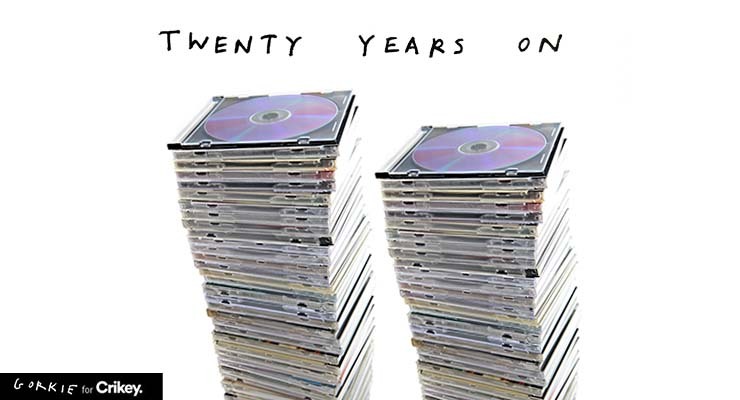
The Twin Towers were my favourite buildings in New York. At 8am on September 11, 2001, I walked past them for the last time. I glanced up at their spires, silhouetted against a cloudless blue sky. I told my friend Janis that we would return later with our lunch from the nearby Amish market. We hurried on. An exam awaited us in a hotel ballroom a block away.
Barely an hour later we were told to stop writing, leave our belongings, and evacuate via the fire escape.
As we emerged into the street below, chaos enveloped us. Police and gridlock and cacophony and debris and shocking images saturated our senses. My first thought was that a bomb had exploded. Instinct told me to flee lest another detonate. I heard a cry that people were leaping from the burning skyscrapers. I knew that could not be unseen, so I didn’t look.
I grabbed a colleague and we headed south to clear the danger zone, then skirted up the east side of Manhattan to our office near Madison Square Park. By the time we arrived, both towers were gone. Soon we learnt that the Pentagon was ablaze, and later that the US Capitol had been spared by the courage of passengers on United Airlines flight 93.
Our Pearl Harbor moment shocked America and the world. And like that early morning raid, it jolted the nation’s trajectory.
Twenty years on, America’s retreat from the Afghanistan war triggered by the attacks bookends its anniversary. Amid the regrets and recriminations flowing from that conflict, the impact of 9/11 and the choices made in its aftermath are still coming into focus. We will debate them for years.
When the sun rose that morning, the United States was riding high. Optimism abounded. The Cold War was in the rear-view mirror, the economy was booming, and president Bill Clinton had balanced the federal budget for the first time in four decades. The new millennium and emerging tech revolution heralded a fresh era of American promise. It seemed the peace dividend had arrived.
Then everything changed.
George W Bush had scraped into office despite losing the popular vote. (It didn’t hurt that his brother was Florida’s governor.) But on 9/11 he became a “wartime president” and his popularity soared, just like his father’s had a decade earlier. Little did we know that the fuse was lit that day to invade Iraq. He should have heeded his father.
For a brief window, the nation was united in grief and resolve. It also wanted revenge, or at least retribution.
New York transformed into a village, with neighbour comforting neighbour, and stranger helping stranger. No one who was there will ever forget it. In my off hours I helped prepare meals for first responders at Ground Zero. It wasn’t much, but it was something. Everyone did their bit.
9/11 — a sliding doors moment
That day was a sliding doors moment — and it also became a marker of roads not taken, opportunities squandered. Americans were ready to follow our leaders, prepared to sacrifice and commit. Instead, Bush led us to war, then told us to go shopping. Without substantive purpose, national unity soon dissolved. The world kept turning.
Bush’s Democratic rival Al Gore had made climate change central to his presidential campaign platform. Too many people didn’t listen. He went on to win an Oscar, a Grammy, an Emmy, and a Nobel peace prize. Too many still refused to listen. We lost two decades to inaction, but at long last the message appears to be sinking in.
Democrat Barbara Lee was the lone congresswoman who voted against war three days after the attack. Imagine the fortitude that took. And the foresight.
Xi Jinping was governor of Fujian province. Vladimir Putin was in his first year as Russian president. Angela Merkel was not yet German chancellor. Their imprint on the world lay ahead.
On the day the towers fell, with thousands murdered, Donald Trump boasted that he now owned the tallest building in New York. That should have been the last we heard from him. If only.
Enron, an energy giant run by Bush’s pals, collapsed in December 2001. It was the largest bankruptcy ever. Investigators found it was riddled with fraud, conspiracy and insider trading. Its auditor, Arthur Andersen, the world’s premier accounting firm, went with it. Six months later WorldCom, a telecommunications behemoth, raised the bar with the biggest accounting fraud in history. That was until Bernie Madoff said “Hold my beer” in 2008.
There was no Facebook. No Twitter. No YouTube. No Tinder. No Instagram. No smartphones. Netflix was a DVD business. Less than half the US population had internet at home. Most who did used dial-up access. Amazon sold $3 billion in goods in 2001. Now it does that in less than two days.
So many changes …
America had never had a Black president. Or a female vice-president. Only white men. Same-sex marriage was not permitted. Conservatives were pushing for a constitutional ban. They failed. Not only is same-sex marriage now legal, it is so normal that we have had the first gay, married presidential candidate in Pete Buttigieg, now a cabinet secretary who has recently adopted children with his husband.
Lady Gaga and Adele were teenagers on 9/11. Taylor Swift and Justin Bieber not even that. Billie Eilish and Olivia Rodrigo had not been born. Nor had Greta Thunberg. Amanda Gorman was three years old, Malala Yousafzai was four. Michael Phelps and Katie Ledecky had no Olympic medals between them. LeBron James hadn’t landed in the NBA. Simone Biles hadn’t done a somersault. Tom Brady was a rookie quarterback. Roger Federer was yet to win a grand slam. Rafael Nadal and Novak Djokovic were still juniors. Lionel Messi hadn’t kicked a senior goal. Oscar winners Brie Larson, Jennifer Lawrence, Daniel Kaluuya and Alicia Vikander were doing school plays.
NASA has flown a helicopter on Mars.
The Amish market was destroyed that day. In 2006 it was reborn a few blocks away and it prospered until the pandemic turmoil shuttered its doors last September. With luck it will return.
Today I will fly to New York to attend the memorial, and mark the anniversary with two friends I was with that morning. We will mourn those who perished, and be grateful to have each other.
Much has happened in 20 years. Some dreadful things. Some wonderful things. Some astonishing things. The lesson of 9/11 is that people are resilient. Life goes on. The world is what we make it.








Good article. I’m reminded of a line in Homeland; “The first thing a weak president does in order to show power is to start a war.”
MrsT was dead in the water until the Falklands.
Alas, khaki is always an election winner – initially, at least.
Most interesting. War on Drugs, war on Terror – ‘War on…’ is still their go-to default position. Coming soon will be War on Climate Change, no doubt involving lots of terraforming like putting sulphur in the stratosphere, iron in the ocean and shade sails in space etc, thereby making things a hell of a lot worse. Just like the other Wars on. Hubris followed by nemesis.
Barbara Lee for President?
Terrific piece, thanks. We go on, with all the joy and gratitude in our hearts we can muster.
Bruce Shapiro put subsequent events into perspective on ABC’s Radio National Late Night Live earlier this week. It is 16 mins worth listening to:
https://www.abc.net.au/radionational/programs/latenightlive/bruce-shapiro-sept/13530644
Have done DF, nice pick up.
Meanwhile the reasons for Islamic terrorism are still denied.
Poverty, intrusion into Islamic lands by Western imperialists since the 19th century, and most of all, the reaction of “warriors for God” – Allah – fighting against western “infidels”.
{Read Osama Bin Laden’s published list of greivances against the West, chief among them being the occupation of Muslim lands by foreign forces, and the creation of Israel against the wishes of the Arab world].
Re “warriors of God”: this issue requires acknowledgement in the UNGA that holy scripture, all scripture, is the word of men in search of God, not the actual ‘Word of God‘ itself. But the powerful US fundamentalist/Conservative Christian lobby (“in God we trust”) will not countenance any such examintion or observation that biblical scripture is a man-made document (ditto for Islamic conservatives vis a vis the Koran). Therefore the issue has not been considered at the highest inernational levels, as itmust be if we are to solve so-called “terrorism”.